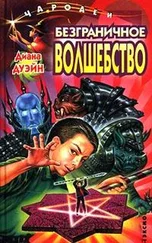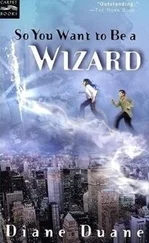Диана Дуэйн - To Visit the Queen
Здесь есть возможность читать онлайн «Диана Дуэйн - To Visit the Queen» весь текст электронной книги совершенно бесплатно (целиком полную версию без сокращений). В некоторых случаях можно слушать аудио, скачать через торрент в формате fb2 и присутствует краткое содержание. Жанр: Фэнтези, на русском языке. Описание произведения, (предисловие) а так же отзывы посетителей доступны на портале библиотеки ЛибКат.
- Название:To Visit the Queen
- Автор:
- Жанр:
- Год:неизвестен
- ISBN:нет данных
- Рейтинг книги:4 / 5. Голосов: 1
-
Избранное:Добавить в избранное
- Отзывы:
-
Ваша оценка:
- 80
- 1
- 2
- 3
- 4
- 5
To Visit the Queen: краткое содержание, описание и аннотация
Предлагаем к чтению аннотацию, описание, краткое содержание или предисловие (зависит от того, что написал сам автор книги «To Visit the Queen»). Если вы не нашли необходимую информацию о книге — напишите в комментариях, мы постараемся отыскать её.
To Visit the Queen — читать онлайн бесплатно полную книгу (весь текст) целиком
Ниже представлен текст книги, разбитый по страницам. Система сохранения места последней прочитанной страницы, позволяет с удобством читать онлайн бесплатно книгу «To Visit the Queen», без необходимости каждый раз заново искать на чём Вы остановились. Поставьте закладку, и сможете в любой момент перейти на страницу, на которой закончили чтение.
Интервал:
Закладка:
– and everything settled into a kind of silvery darkness: no more discomfort – he was on the inside of the beak and claws now. He was soaring through what looked like cloud, faintly lit as if with twilight: the sense of day about to dawn, but in no hurry about it. The feeling was unlike skywalking, which Arhu enjoyed well enough: but this was less passive. He had wings, and the wind was in a dialog with them.
Nicely done, something said in his head. We could probably make a raven of you, with about fifty years' work. Now show me the place you were in. Not the Moon, but the street –
Arhu tried to see it again in mind as he had seen it in reality: but most of what he remembered was the smell. People's noses are wonderfully accurate and delicate. They can tell where another Person has been, or where an ehhif or houff has passed, for months afterward. But the blunting, smashing, awful weight of the smell in the London they had visited had ruined Arhu's ability to taste or smell most things for the better part of a day. Now he recalled that smell better than any other part of the experience: sickening, disgusting, like a shout inside your head, horse-bird-houff-ehhif– smoke-soot-garbage-shit-of-every-description … Sorry, Arhu gasped from inside the wings, inside the beak and claws.
Don't apologize, it's perfect, said the one who shared the inside– beak-and-claws with him. A tolerant young mind, wry, dry, somewhat disrespectful of form but respectful of talent and wisdom and wit, a fearless seeker of strange new experience like the inside of a cat's mind, or half a pint of Guinness poured into an ashtray: that was Odin. Arhu put his whiskers forward, or tried to and then discovered he had no whiskers: he dropped the lower half of his beak instead. As he did so, he got the faintest whiff of another name … and carefully turned his nose away from it. At least he still had a nose of sorts.
Now then, said the other, either missing all this, or ignoring it. The path's clear.
They soared for a good while, circling. Every now and then Arhu would get a glimpse, through the silvery twilight, of a landscape below them: always the features were the same – the oxbowed bends of the river, the great loop of the Thames that held the Isle of Dogs, not quite an isle but a fat and noticeable peninsula. Then the cloud would close in again. Probability, Odin said. Or the lack of it …
And suddenly the cloud cleared, and they dropped from the heavens together like a stone. The city below them was filthy. The Moon above them was scarred.
Keep your eyes open, Odin said then. We can't stay long. Is this it?
Arhu looked down, trying to find the street in which they had appeared. He found the Tower quickly enough, and the street that ran by it: and there, just visible to a feline wizard's eye, the tangle of half-seen strings that meant a sidled Person running across the mud, followed by two others. One of them fell as a motorcar rolled toward and over him –
This is it?
This is it!
All right, then. Now we start work. Let us See together –
Rhiow felt the raven close his wings and drop like a stone: and the tense of the vision changed, just that quickly, so that Rhiow found herself wanting to shake her head in confusion. Until this moment, everything happening to Arhu had been in a clearly discernible then. Suddenly, though, it was now, all now: single threads of that seamless whole that the Whisperer saw. But changed – the Eye a bird's instead of a Person's, seeing with a more direct and concentrated kind of vision, as if from one side of a brain rather than with the binocular vision of a predator. She was not sure she was seeing everything Arhu had, it all came so quickly. All now, all here, glimpse after glimpse tumbling one after another as the feline/raven mind fell through the cloud of probability –
– one of the London streets opening out below them, suddenly: in the middle of it, being driven along at a sedate pace, a queen-ehhif out for a ride in a coach pulled by horses. Men ride in front of her, and behind her, riding on other horses as guards. The queen-ehhif is a little stocky, plainly dressed in dark clothes. Her face is one which could have smiled, but does not. The coach turns a corner into one of those broad tree-lined avenues. People passing by pause, and bow, as the coach passes. The queen-ehhif waves occasionally, a very reserved gesture. The coach drives on –An ehhif is standing at a corner nearby. As the coach passes he pulls out a gun, points it at the queen-ehhif in the coach. Shoots.
Heads turn at the sudden crack of sound. In the coach, the queen– ehhif looks over her shoulder, bemused, as the ehhif driving the coach whips up the horses. They clatter away. Others run or ride toward the ehhif who fired the gun. The queen-ehhif, unharmed, looks back, her white face sharply contrasted against the dark bonnet. This has happened to her before, but she can never quite bring herself to believe it when it does.
– Now the same coach again, driving in through gates surrounding a wide green park in the countryside outside London: and then into the courtyard in front of a massive house, turreted with the same kind of great round towers as are found inside the double walls where the Ravens live. The coach drives up to the doors, and the queen-ehhif gets out, with a younger queen-ehhif, her daughter perhaps, beside her. The two of them go in together, through the great front gate, in the broad low sunset light.
Close, Odin thought, but not quite. Now we find the core –Several more flickers as the raven and his passenger dive through patches of silvery twilight, and out again: and after a few breaths' time, the yellowy sunset light reasserts itself. But this time everything is very different. A dark carriage comes out of the gates: but its windows are shut, and draped in black. Everything about it is black: the horses, the harness, the clothes of the tom-ehhif who drive. The coach is a long one, long enough to take one of the boxes in which the ehhif put their dead before burying them. The long drive down to the roadway is lined with ehhif, all dressed in black, weeping. Some of them hide their faces in their hands as the coach passes them. Some of them hold ehhif-young up to see the coach as it goes by. Occasionally a cry breaks out from one of the grown ehhif, a terrible sound, as if wrested from a throat that normally would never make such a noise no matter what the circumstances. Otherwise everything is very silent, the only noises the sound of the horses' hoofs, and far away, the bell of one of the houses where ehhif go to entreat the Powers or the One, tolling very slow, one strike in every minute, like a failing heart.
The long black equipage winds away toward London through the brassy sunset light. The raven flashes overhead, passing them, dodging through cloud again, coming out over the City, and veering close to a shopfront in a street that is almost empty. This, in its way, shocks Rhiow more badly than anything else she has seen. She is a city Person: she is used to streets that always have someone walking or driving on them, no matter what time of day or night it is. But this place looks like it has died, or like the heart has been torn out of it. Few ehhif are abroad, and almost all of them are dressed in black or have black armbands, even black rags, tied about their arms. All their faces are grim: many are tearstained.
The raven perches for a moment on a folding board which is set up outside the shopfront. The shop itself is dark and its door is shut. But outside, the piece of paper pasted to the board says, in large black letters, HER MAJESTY'S FUNERAL. It is the front page of The Times of London, and it has no other words on it except the newspaper's masthead, and the date: JULY 14, 1874.
Читать дальшеИнтервал:
Закладка:
Похожие книги на «To Visit the Queen»
Представляем Вашему вниманию похожие книги на «To Visit the Queen» списком для выбора. Мы отобрали схожую по названию и смыслу литературу в надежде предоставить читателям больше вариантов отыскать новые, интересные, ещё непрочитанные произведения.
Обсуждение, отзывы о книге «To Visit the Queen» и просто собственные мнения читателей. Оставьте ваши комментарии, напишите, что Вы думаете о произведении, его смысле или главных героях. Укажите что конкретно понравилось, а что нет, и почему Вы так считаете.



